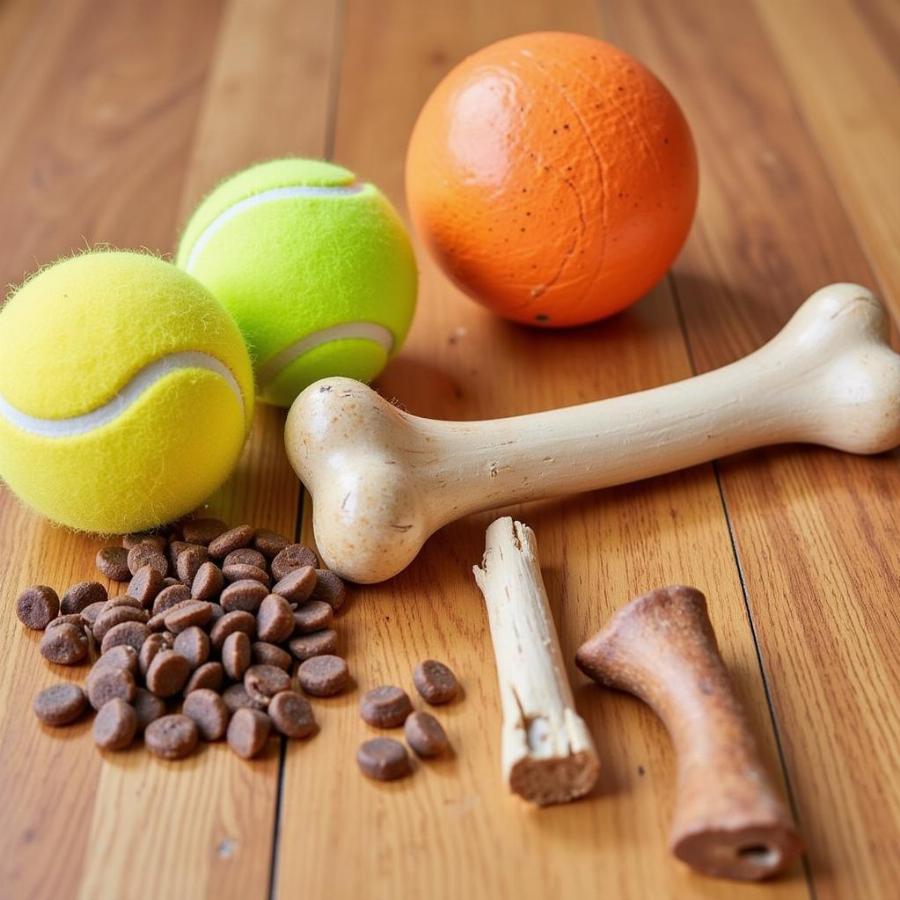As a loving dog owner, your furry friend’s safety is always a top priority. We all know dogs love to chew and sometimes gulp down their food or treats a little too quickly. But did you know that this behavior can actually put them at risk of choking? Understanding the causes, signs, and prevention strategies related to choking can make all the difference in ensuring your canine companion stays safe and happy.
Common Causes of Choking in Dogs
Dogs explore the world through their mouths, which can sometimes lead to trouble. Several items pose choking hazards for our four-legged friends:
- Small Toys: Tennis balls, squeaky toys, and other small toys can easily become lodged in a dog’s throat.
- Bones: While bones might seem like a natural chew toy, they can splinter and become stuck in the esophagus or trachea.
- Rawhide: This popular chew can soften and become a choking hazard, especially if swallowed in large pieces.
- Sticks: Sticks are notorious for causing choking incidents and even internal injuries.
- Food: Gulping down food too quickly, especially large chunks of dry kibble, can lead to choking.
 Common Dog Choking Hazards
Common Dog Choking Hazards
Recognizing the Signs of Choking in Dogs
It’s crucial to recognize the signs of choking in dogs so you can act quickly if necessary. If your dog exhibits any of the following symptoms, they may be choking:
- Pawing at the mouth
- Excessive drooling
- Gagging or retching
- Difficulty breathing or noisy breathing
- Blue-tinged gums (cyanosis)
- Loss of consciousness
What to Do If Your Dog is Choking
If you suspect your dog is choking, stay calm and follow these steps:
- Check the Mouth: Carefully open your dog’s mouth and look for any foreign objects. If you see something and can easily remove it with your fingers, do so.
- Back Blows: If the object is lodged and you can’t remove it easily, try giving your dog five sharp blows between the shoulder blades with the heel of your hand.
- Abdominal Thrusts: If back blows don’t dislodge the object, try the Heimlich maneuver for dogs. This involves applying pressure to the abdomen to force air out of the lungs and potentially dislodge the obstruction.
- Seek Veterinary Care Immediately: Regardless of whether you successfully dislodge the object, it’s essential to take your dog to the veterinarian immediately. There could be internal injuries or lingering complications that require professional attention.
Preventing Choking in Dogs
Prevention is always better than cure. Take these proactive measures to minimize the risk of choking:
- Choose Safe Toys: Select toys that are appropriate for your dog’s size and chewing habits. Avoid toys with small parts that can easily break off.
- Supervise Chewing: Always supervise your dog when they’re enjoying chews or treats. Take away any items that start to break down or become small enough to swallow.
- Feed Safely: Feed your dog in a calm environment and consider using a slow-feed bowl if they tend to gulp their food. Break treats into smaller, manageable pieces.
- “Leave It” Training: Teach your dog a reliable “leave it” command. This can be invaluable in preventing them from picking up potentially dangerous items during walks or playtime.
Expert Insight
“It’s always better to be safe than sorry,” says Dr. Emily Carter, a veterinarian with over 15 years of experience. “If you have any concerns about your dog’s chewing habits or potential choking hazards, don’t hesitate to reach out to your veterinarian for personalized advice and recommendations.”
By following these tips and staying vigilant, you can help ensure that your furry friend enjoys a lifetime of safe and happy chewing. Remember, a little prevention goes a long way in protecting your beloved companion.
FAQs about Choking in Dogs
Q: Can a dog choke on water?
Yes, although less common, dogs can choke on water, especially if they drink too quickly.
Q: Can a dog choke on its own saliva?
While rare, it’s possible for dogs with certain medical conditions that affect swallowing to experience choking on saliva.
Q: What is the best way to prevent choking on bones?
Avoid giving your dog cooked bones altogether, as they are more likely to splinter. If you do choose to give raw bones, always supervise your dog and choose bones that are too large to swallow whole.
Looking for More Information?
- Learn more about safe treats for your dog: beef jerky treats dogs
- Discover the potential risks of pig ears: are pig ears okay for dogs
For additional resources and expert advice on all things dog-related, visit Beaut Dogs today! We’re passionate about providing dog lovers like you with reliable information to help you keep your canine companion happy, healthy, and safe.
When you need support, contact Beaut Dogs at [email protected] for detailed and accurate answers to your questions.